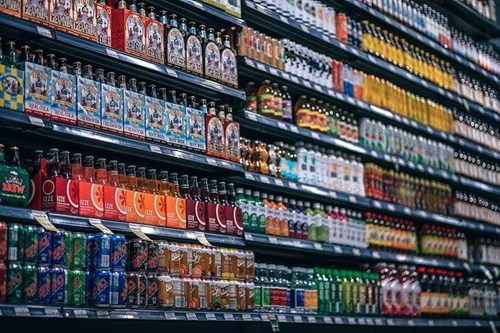Critique of UK Supermarkets for Slow Progress on Plastic Reduction Highlights Challenges of Assessing Environmental Performance Across Value Chains
In the recent study “Checking out on Plastic” by Greenpeace and the Environmental Investigation Agency, UK supermarkets are called out for not doing enough to reduce plastic consumption. Furthermore, performance appears to be worsening, as the authors assess that the plastic footprint of the major UK supermarkets has actually increased since 2017. The study does acknowledge that progress has been made on reducing plastic use in own-branded products, but notes that unfortunately this has been offset by limited improvement on the branded goods side (which account for the majority of sales in many cases).
Evidently the big-brand FMCG companies have more work to do on reducing plastic in their products, and indeed, some have announced stretching goals on this issue. The study does however point to the broader and more thorny, issue of how environmental impact is evaluated across value chains, and specifically the distinction between “individual” vs. “cumulative” impact assessments. By way of example, one might argue that the aforementioned study should have focused on plastic usage for the supermarkets’ own branded products and operations only. While this would be a more accurate assessment of the firms’ progress on plastic reduction, it would also miss the overall picture regarding plastic usage by firm, which may mislead consumers if they are making buying choices from this information.
This nuance has profound implications if considered in the context of another area of environmental impact assessment - carbon accounting. In product manufacturing, carbon is an issue across multiple stages of the value-chain, raising a question on how this should be accounted for. For example, should a cosmetics product brand be assigned the carbon emissions arising from the specialty chemicals, petrochemicals, and ultimately crude oil extraction activities earlier in the cosmetics value chain? The accounting process would be complex and laborious, and there are further uncertainties around who would be accountable for paying carbon taxes (if mandated by legislation). In contrast, assessing carbon liabilities at each stage of the value chain and assuming no “pass through” would be much simpler, but would also effectively absolve latter stage value chain participants of carbon liability, potentially allowing them to game the system.
At present there are no widely accepted and deployed carbon accounting standards, and regulation (as well as taxation) is unlikely to develop in a uniform way across jurisdictions. This uncertainty means that for companies, there is not only a pragmatic issue around how to evaluate their environmental impact, but an emerging strategic issue around embedded carbon (and other environmental) costs in their value chains, which could have significant implications for the economics of their business models. The risk for some is being caught out as the landscape evolves, as operating further down the value chain may give a false sense of ‘insulation’ from the environmental pressures upstream.
*****
Returning to the issue of plastics and UK supermarkets; the road ahead is likely to get harder much faster – in our previous study: “Disruptive Sustainability: Implications of the UK Plastic Packaging Tax” we noted that the already limited plastics recycling capacity in the UK will come under increasing strain, and at present there are no fully biodegradable substitutes for some core plastic food package types.
Link: https://www.theguardian.com/environment/2021/jan/26/uk-supermarkets-not-doing-enough-to-cut-plastic-use-says-report
